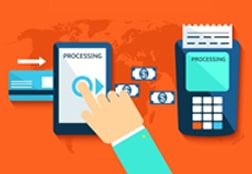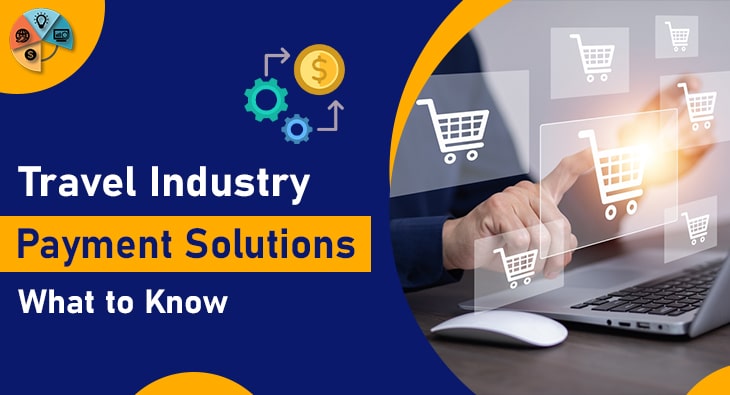An Overview of Payment Solutions in the Travel Sector
In today’s fast-paced world, the travel industry is evolving rapidly, necessitating a comprehensive approach to handling transactions. With travelers expecting seamless, secure, and flexible payment options, businesses in the sector are investing heavily in innovative solutions to stay competitive. These solutions range from traditional credit card processing to advanced digital payment systems, all designed to facilitate smooth transactions across the globe. By understanding the available options, travel companies can optimize their payment processes, enhance customer experience, and ultimately drive growth.
The integration of various payment methods, such as mobile wallets and digital currencies, allows travel businesses to cater to the diverse needs of their clientele. Platforms like PayPal, Apple Pay, and Google Wallet have become popular due to their user-friendly interfaces and enhanced security features. These platforms enable quick and secure transactions, reducing the likelihood of payment fraud and improving customer trust.
Furthermore, the use of artificial intelligence and machine learning in payment systems has brought about significant improvements in fraud detection and prevention. These technologies analyze transaction patterns in real-time, identifying and flagging suspicious activities promptly. Blockchain technology is also gaining traction, offering a decentralized and tamper-proof method for conducting international transactions, thereby reducing costs and increasing transparency.
As payment technology continues to advance, travel businesses must stay informed and adapt to maintain a competitive edge in the ever-changing landscape ofpayment solutions.
Some Related Blogs
- How to Choose the Right High-Risk Payment Processor in 2024
- Top High-Risk Payment Processing Solutions for Online Businesses
- 5 Key Steps to Reduce Processing Risks for High-Risk Merchants
- Expanding into International Markets: Payment Essentials for High-Risk Merchants
Typical Payment Obstacles in the Travel Industry
Handling multiple currencies and international transactions is a significant challenge for the travel industry. Businesses must navigate complex exchange rates and transaction fees, which can fluctuate and increase costs. Managing chargebacks and preventing fraud is another critical concern.
The sector is particularly vulnerable to fraudulent activities due to the nature of online and phone transactions, which lack physical verification. Effective fraud prevention measures are crucial to protect financial interests and maintain customer trust.
Additionally, regulatory compliance across different regions adds another layer of complexity. Each country has its own set of financial regulations that businesses must adhere to, necessitating thorough knowledge and meticulous management to avoid legal issues.
Varieties of Payment Solutions Available
A diverse range of payment solutions is at the disposal of travel businesses, each with distinct advantages and features. Credit and debit card processing remains prevalent, providing convenience and familiarity. However, the surge in digital wallets and mobile payments has reshaped the payment landscape. Platforms such as PayPal, Apple Pay, and Google Wallet offer secure, swift, and user-friendly transaction options, appealing to tech-savvy travelers. These solutions not only enhance customer experience but also streamline operations and cut costs for businesses.
Digital wallets are particularly beneficial for their speed and security. By storing payment information securely, they facilitate quick transactions without the need to enter card details repeatedly. Mobile payment apps provide an additional layer of convenience, allowing travelers to make purchases or bookings directly from their smartphones.
Another innovative solution is the use of digital currencies. While still gaining mainstream acceptance, digital currencies like Bitcoin offer benefits such as lower transaction fees and enhanced privacy. These currencies can be particularly advantageous for international travel, eliminating the need for currency exchange and reducing associated costs.
Bank transfers and electronic funds transfers (EFTs) also remain viable options, particularly for large transactions. These methods are secure and can be cost-effective, though they may not offer the same immediacy as digital wallets or mobile payments.
Moreover, third-party payment processors, which aggregate multiple payment methods, can provide an integrated approach that simplifies transactions. These processors offer the advantage of managing diverse payment options under a single platform, making it easier for businesses to handle various payment preferences.
Travel businesses can leverage this broad spectrum of payment solutions to cater to the diverse needs of their customers, ensuring both convenience and security.
Selecting the Appropriate Payment Solution
Selecting a payment solution requires careful evaluation of multiple factors, including cost, security, and user experience. Businesses should prioritize solutions with transparent fee structures to avoid unexpected expenses. Robust security features such as encryption and tokenization are essential for protecting sensitive customer data, instilling confidence in the payment process.

Additionally, the ease of integration with existing systems can streamline operations, minimizing disruptions and reducing the need for extensive staff training. It’s also beneficial to consider customer preferences; offering a variety of payment methods can enhance satisfaction and increase loyalty. Finally, choosing a provider with strong customer support can ensure that any issues are quickly resolved, maintaining smooth transaction processes.
The Influence of Technology on Payment Solutions
The influence of technology on payment solutions in the travel industry is profound, continually reshaping the way transactions are conducted. One notable advancement is the integration of artificial intelligence (AI) into payment systems. AI enhances fraud detection capabilities, allowing systems to analyze transaction patterns in real-time and identify suspicious activities more accurately. This proactive approach significantly mitigates the risk of fraud, ensuring that customers’ financial data remains secure.
Blockchain technology is another groundbreaking innovation that is gaining traction. Its decentralized and tamper-proof nature offers unparalleled security and transparency for international transactions. This technology can reduce transaction costs and eliminate the need for intermediaries, making cross-border payments more efficient and reliable.
Mobile technology has also revolutionized the payment landscape. With the rise of smartphones, mobile wallets like Apple Pay and Google Wallet have become mainstream. These platforms offer convenience and security, enabling travelers to make quick and secure payments on the go. The adoption of near-field communication (NFC) technology further enhances the ease of contactless payments, which have become increasingly popular.
Digital currencies, although still emerging, present another technological frontier. Cryptocurrencies like Bitcoin offer lower transaction fees and enhanced privacy, appealing to a niche but growing segment of tech-savvy travelers. As acceptance of digital currencies grows, they are likely to play a more significant role in the travel industry ‘s payment solutions.
Cloud-based payment systems provide another layer of innovation, offering scalability and flexibility for travel businesses. These systems allow for seamless integration with existing operations, enabling businesses to handle large volumes of transactions without compromising on performance or security.
![]()
Email us anytime!
Email customer service 24/7
![]()
Call us anytime!
Reach customer care 24/7 at +1 (727) 330-3944



One thought on “Travel Industry Payment Solutions: What to Know”
Comments are closed.